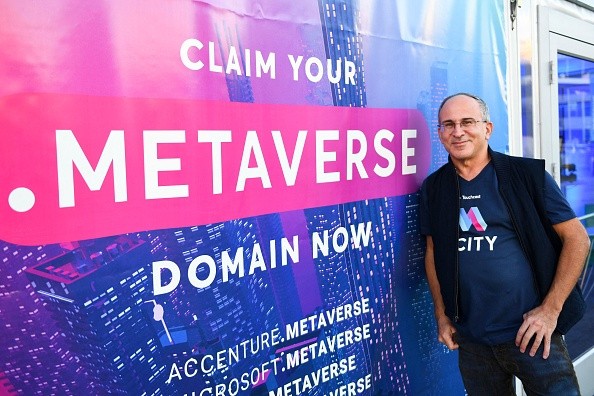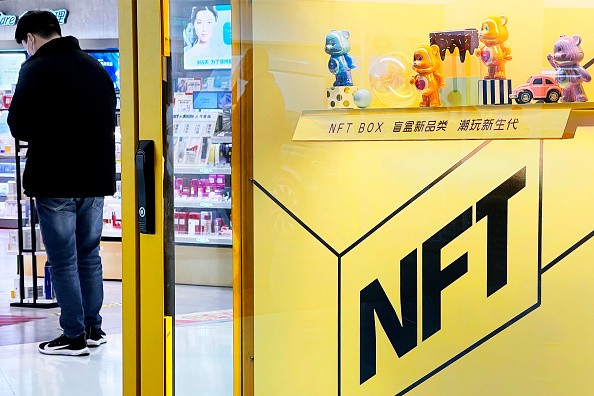What is this so-called metaverse everyone keeps raving about?
On the surface, it sounds like a quality piece of attainable technology, a literal melting pot of interconnected ideas, bringing together everything and everyone we know and love into a decentralized digital space. Although Mark Zuckerberg may have popularized the term via his renaming of Facebook, a move that will certainly go down in history as one of the best marketing strategies, this metaverse concept has had its roots situated in a variety of different industries long before Zuckerberg took it up as his own.
What exactly does the metaverse mean, though? CES 2022 was largely focused on utilizing this metaverse ideal throughout a number of different areas, including transportation, health, real estate, video gaming, and much more. This topic is likewise void without discussing NFTs, as the crypto-based tokens seemingly go hand-in-hand with the metaverse ideal.
Sure, it's a nice-sounding word with a ton of potential behind it if the speculation and the concepts can be made a reality, but at the end of the day, is the metaverse truly attainable? And, if so, how exactly will it improve our lives?
The Universe But Virtual
To put the metaverse into perspective, let's first take a quick look at our own universe itself. Everything we know is mostly situated on this beautiful planet called earth, whereas trillions upon trillions of unknown information still reside in the cosmos. Think of the metaverse in similar terms. It is a digital universe that takes everything we already know about the internet yet expands it into a fluid, breathing space, wherein theoretically, interaction and insight can flourish.
While still in its infancy, the metaverse still utilizes a thought process of virtual reality, but it can even go beyond that. For now, most metaverse concepts are based in this VR state, with Meta being one of the biggest players via its Quest 2, which will see a forthcoming new iteration soon enough. But augmented reality capabilities are likewise thriving, if not more so than VR, as the mobile platform has slowly dominated this realm of technology.
Putting both VR and AR capabilities to work alongside the metaverse will bring about a "new reality," a digital construct, almost a pocket dimension of information, places, and people. Consider Facebook a state or country in this realm, with Twitter right beside it and Amazon directly below it. Ecommerce capabilities, social media, gaming, all of these possibilities would be molded into one coherent place, not unlike the internet except its an all-in-one package based on the Web3 ideal.

Related Article : The Metaverse Explained: What It Is, and Why You Should Care
In this digital space, users and visitors alike will have a metaverse avatar, which certainly sounds scary on the surface but isn't the important part. Whether socializing or shopping, this avatar acts as a conduit of you, who is either situated in a VR headset or something even more profound designed far into the future.
These are all the basic, foundational aspects behind the concept, but then where does that leave us? With a mere XR digital realm that sounds more akin to Fortnite than it does something truly revolutionary - yet, there's much more to grasp with the metaverse concept. It's a layered construct that takes the internet and unfolds it into a (somewhat) tangible space that can allow for almost unlimited potential.
Digitizing Everything
The flip side of this endeavor is bridging everything into a digital sphere of influence. As mentioned, Fortnite is far among the best examples, as it paints a suitable picture of what the metaverse generally could look like at an infinitesimal scale.
In Epic's Unreal Engine-run video game, players can customize their avatar at their own leisure and venture into a world that features some of the most iconic characters across media. Among the biggest names in music have likewise shared digital concerts with fans through the video game, not to mention movie release adverts, like Star Wars's The Rise of Skywalker, and historical mosaics, like the Martin Luther King Jr. fiasco.
But beyond that, there's no fluidity. For instance, my clothes owned in Fortnite (called skins in-game) stay in Fortnite. I can't deliver these items to other games, despite the fact that Fortnite features some of the biggest names in gaming. The metaverse would thus make this more of holistic reality. Say I wanted to wear my new Gucci shoes I bought from the online store to the digital concert I'm headed to after; the metaverse sees this as a reality.

It goes far beyond simply shopping and gaming, though. The metaverse as a construct can be utilized in practically any form or field necessary. For one, as the pandemic has restructured our lives into a work-from-home world, the metaverse would make this idea far less burdensome, and to some, it's already an inviting opportunity.
Lenovo recently performed a study of how respondents would feel if the workplace turned into an all-digital front, i.e. a "metaversal workplace." A little less than half of those asked responded with a positive - that's 44% of questionnaires replying with a "yes, I would be happy to work inside of the metaverse."
While VR still has quite a long way to go before it becomes more readily adopted, the tech is still very much there and beloved by those who are invested. For me, personally, I simply don't like having all of this unnecessary hardware around, and the wires are annoying as ever, but for Wired's Adrienne So, virtual reality is just another platform for the family to lose themselves in at a moment's notice. So writes, "Virtual reality isn't perfect, but it has allowed us to extend our lockdown indefinitely-until my son can be vaccinated. And also...I kind of like it?"
The pandemic has, in short order, only accelerated the rate at which adoption to the metaverse ideal finds infinite traction. We've seen it in gaming, the workplace, and simple family sociability, but then there's also digital real estate. The current housing market may not look so tantalizing for those looking to buy, so maybe virtual condos will satisfy instead?
Look at Decentraland and the Sandbox as two prime candidates for what the digital housing market may look like. These are only two small metaverse concepts that vie to enliven how real estate feels in this new internet-based realm, with everything from shopping malls and movie theaters to cul de sacs and communities thriving like they do in the real world. Sure, it sounds crazy - and a lot of it is - but the foundations are there.
Related Article : Top 5 Metaverse Cryptos to Keep Under Your Radar in 2022
Republic Realm's CEO Janine Yorio explains it best, "We don't know exactly when it's going to hit. We don't know exactly who the winners are going to be. But the fact that this is the next evolution of the internet is 100 percent guaranteed."
The metaverse that can be adopted is literally limitless, but it's all about functionality. We can make all the assumptions and future outlooks we want, but it truly comes down to the core of the technology, which would essentially be Web3. Is it real, or is it all a pipe dream?
A World All its Own
Matthew Ball has done a ton of work diagnosing and enhancing our outlooking of the inevitable metaverse via his all-in-one Primer that details everything from networking to business behaviors in the context of this new realm. He has a book coming out on the subject debuting in the middle of this year, but his detailed purview is only one of many interesting nosedives into what this metaverse truly can be.
To Ball, it's all about transformative technologies that connect us in all-illuminating and ever-forward-thinking ways. It's not so much the next step of the internet but a course correction, amplifying the experience and emboldening how it (the internet) can be utilized in more imaginative ways. In his own words:
"The Metaverse is a massively scaled and interoperable network of real-time rendered 3D virtual worlds which can be experienced synchronously and persistently by an effectively unlimited number of users with an individual sense of presence, and with continuity of data, such as identity, history, entitlements, objects, communications, and payments."
Making this a reality is what's called Web3, a blockchain-based conception of what the next stage of the internet could look like. Like most blockchain ideals, it decentralizes the internet so that not one entity is in full control, i.e. Meta, Google, or Apple. It would also strengthen the utilization of cryptocurrency and NFTs via the underlying blockchain formula, allowing digital purchases to become far more anonymous.
Though not necessarily the same things, Web3, metaverse, and NFTs all share in this same anonymity factor and decentralization. No one person or entity should own the metaverse. That's the selling point. Web3 is the construct made more manifest, taking the internet and giving it a more value-filled and self-governed top-down experience. The metaverse would be this, too, but all-encompassing and all around you in a digital sphere.
Despite the hype, it does have its naysayers, such as PlayStation creator Ken Kutaragi. In a recent interview with Bloomberg, the console guru explains it as an affront to the real world. Kutaragi explains, "Being in the real world is very important, but the metaverse is about making quasi-real in the virtual world, and I can't see the point of doing it." He has a point that digital escapes are still very much neglected due to this very unreal and out-of-space reality, even with the potential surrounding it.
However, the war will still rage on, and the money is there. According to Morgan Stanley and Goldman Sachs, the metaverse concept is an $8 trillion potential market, a breeding ground for expansive opportunities, which Morgan Stanley notes could "go beyond the current online consumption market."
Although but a mere infant on the precipice of technological innovation, the metaverse serves as a rallying cry, an underlying purview into what the next step of the internet could and should be. It may still take years to realize its potential fully, but the potential is truly there, and the innovative aspects behind the buzzword are real. It's unclear how attainable every concept is, but the metaverse is more than just a fancy word at the end of the day.
It's an ideal that will test the limits of our imagination.
![Apple Watch Series 10 [GPS 42mm]](https://d.techtimes.com/en/full/453899/apple-watch-series-10-gps-42mm.jpg?w=184&h=103&f=9fb3c2ea2db928c663d1d2eadbcb3e52)



